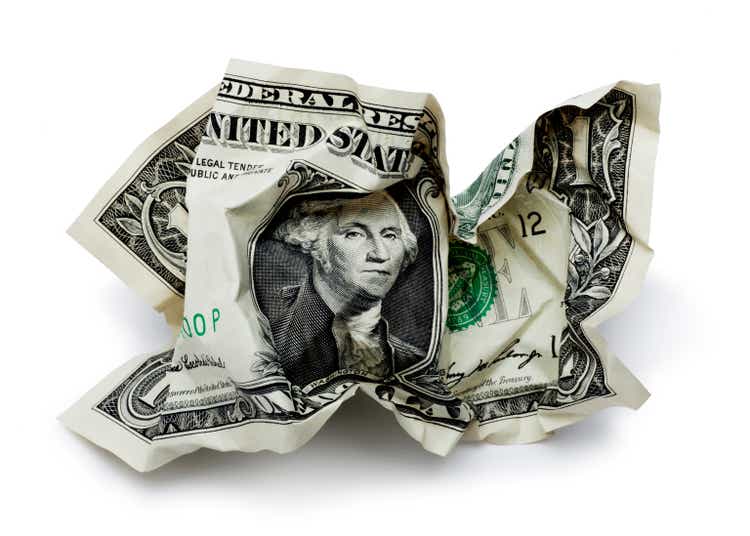Listen on the go! A daily podcast of Wall Street Breakfast will be available by 8:00 a.m. on Seeking Alpha, iTunes, Spotify.

Getty Images
Falling short
Led by the U.S. and the EU, the collective West has imposed thousands of sanctions against Russia since its invasion of Ukraine in February 2022. It has led Russia to become the most sanctioned country in the world, and while that has caused considerable damage to parts of its economy, it has overall been resilient, with GDP growth expanding this past quarter by 3.1% Y/Y. The restrictions cover thousands of individuals and regime-linked people, but the ones that make headlines have been leveled against key entities or sectors, or roping off Russia from supply chains and financial systems.
Clashing with reality: There had been expectations that sanctions would expose key vulnerabilities in the Russian economy, but it has proven hard for a country that is self-reliant on its food and energy. Stopping the outflow of capital has also boosted domestic investment and prompted the nation to expand its circle of friends, especially with the world's factory and economic powerhouse - China. Russia has additionally found big consumers to whom it can export commodities like oil, such as India, which is key for a country that has abundant natural resources.
Don't forget the shadow economy, which envelops entire industries and sectors. Western goods and replacement parts have been flowing into Russia from third countries, as documented by the exponential increases in imports to Moscow's immediate neighbors. Add to that smuggling routes, transit points, dark fleets, the reflagging of tankers, doctored documents and money laundering, which can all keep goods and trade flowing, especially through third-party markets.
The latest: One of the earliest threats leveled against Russia in the early days of the war was aimed at severing its financial ties, including the SWIFT payment system. However, alternatives have surfaced with a plan towards de-dollarization, as well as boosting cooperation among the BRICS economic organization and the New Development Bank to counter Western institutions. This week, Russia and Iran even formally linked their Mir and Shetab banking systems, which will make it easier to facilitate trade and conduct transactions.
What else is happening...
Reaction Roundup: SA analysts, experts weigh in on CPI report.
Bitcoin (BTC-USD) blasts past $90K as Trump-fueled rally rages on.
Fed's Kashkari, once a bitcoin skeptic, will now 'have an open mind.'
Buy Now, Pay Later: Klarna (KLAR) confidentially files for U.S. IPO.
Greenlight's Einhorn pitches an industrial stock as a new long.
Amazon (AMZN) rolls out new 'Haul' store to rival Temu, Shein.
7-Eleven considers going private to fend off foreign takeover.
Frontier (FYBR) gains as investors clear deal with Verizon (VZ).
Super Micro Computer (SMCI) continues to slide after delaying 10-Q.
Republicans secure government trifecta after retaining House majority.
Today's Markets
In Asia, Japan -0.5%. Hong Kong -2%. China -1.7%. India -0.1%.
In Europe, at midday, London +0.4%. Paris +1%. Frankfurt +1.4%.
Futures at 6:30, Dow +0.1%. S&P +0.1%. Nasdaq +0.1%. Crude +0.5% to $68.76. Gold -1.4% to $2,551.40. Bitcoin +3.7% to $91,049.
Ten-year Treasury Yield unchanged at 4.46%.
Today's Economic Calendar
07:00 AM Fed's Kugler Speech
08:30 AM Initial Jobless Claims
08:30 AM Producer Price Index
09:00 AM Fed's Barkin Speech
10:30 AM EIA Natural Gas Inventory
11:00 AM EIA Petroleum Inventories
03:00 PM Jerome Powell: Economic Outlook
04:30 PM Fed Balance Sheet
04:45 PM Fed’s Williams Speech
Companies reporting earnings today »